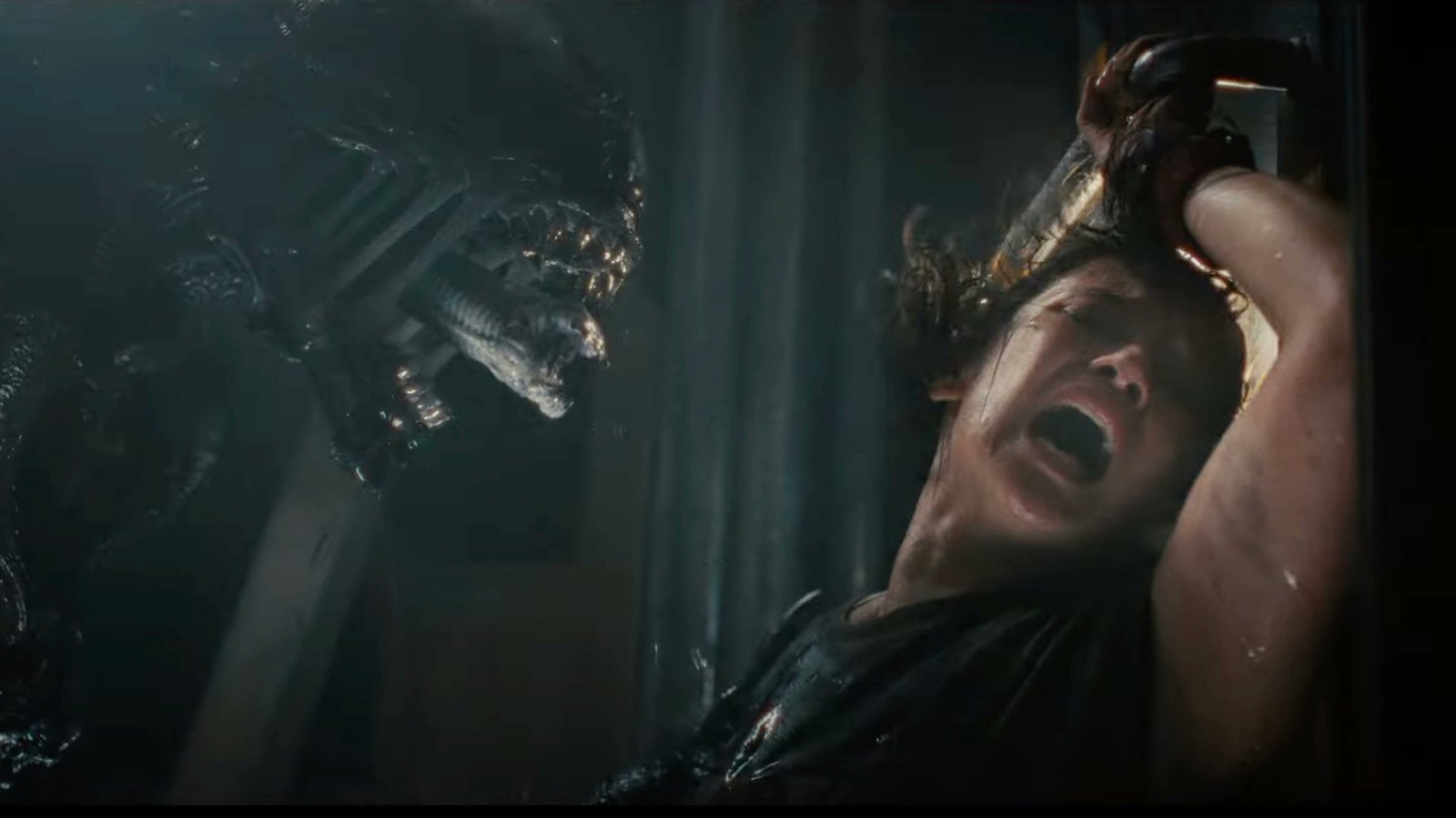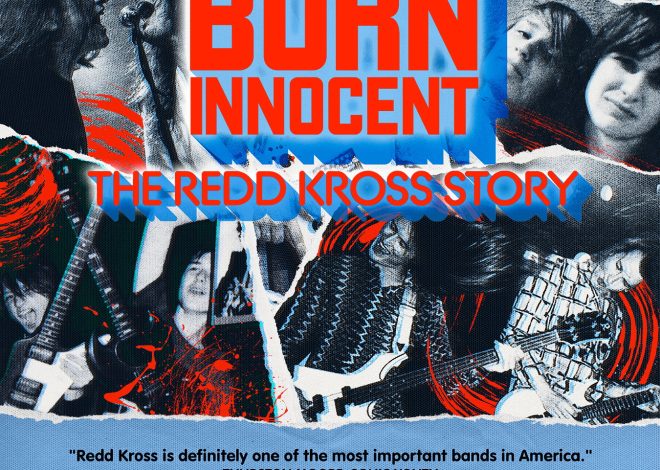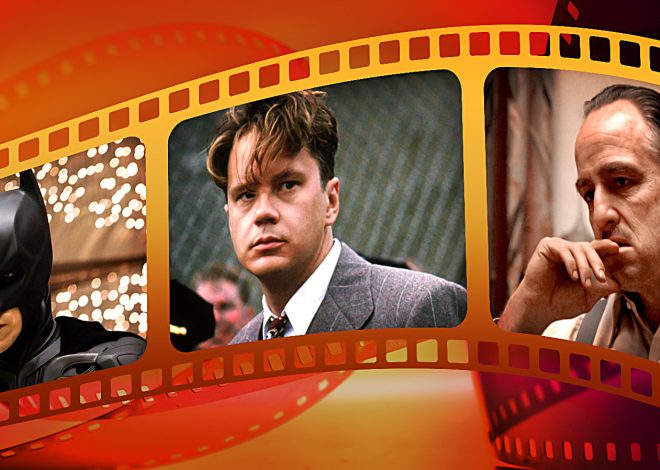
Romulus Is A Direct Sequel To Ridley Scott’s 1979 Movie In Several Ways
Warning: This story has major spoilers for “Alien: Romulus.”
The most recent chapters of the “Alien” franchise took us into the past, with “Prometheus” beginning in 2089 and lasting through 2093 and “Alien: Covenant” picking up over a decade later in 2104. That’s over 20 years before “Alien” unfolds in the year 2122. However, “Alien: Romulus” breaks from the prequel timeline and jumps to a different point in the franchise. Acting as both a sequel to “Alien” and a prequel to “Aliens,” the story in “Romulus” takes place 20 years after Ripley (Sigourney Weaver) first encountered a Xenomorph and 37 years before she would encounter many more of them in “Aliens.”
Perhaps that’s why the movie ended up being more of a direct sequel to “Alien” than the marketing would have you believe.
That’s right, for the most part, the theatrical trailers for “Alien: Romulus” haven’t provided any connective tissue to the original franchise. While there have been some legacy clips used to lay the historical foundation for both longtime fans of the franchise and new viewers just looking for a good sci-fi horror flick, “Romulus” has mostly been presented as a standalone story that feels like a soft reboot of the film series that began all the way back in 1979.
But the reality is that “Alien: Romulus” has much more connective tissue in the narrative than anyone previously thought, and in many ways, it feels like even more of a direct sequel than “Aliens” does — at least when it comes to the continuation of the Xenomorph mythology and the exploits of Weyland-Yutani.
What happened to the original Xenomorph in Alien?
At the end of “Alien,” which was originally much less hopeful and far less open-ended, Ripley is the only survivor of the Nostromo after the ship’s seven-member crew is killed one-by-one after landing on LV-426 and encountering the deadly Xenomorph for the first time. After a facehugger implants its seed into Kane (John Hurt), the quickly developing creature bursts from his chest and eventually grows into the tall, black creature that stalks and murders the rest of the crew. We never see how the chestburster evolves into the larger version of the Xenomorph, but more on that in a moment.
Despite the efforts of the android science officer Ash (Ian Holm) trying to preserve the specimen instead of keeping the rest of the crew safe, Ripley programs the Nostromo to self-destruct, hoping to blow up the creature with the rest of the ship as she escapes in a smaller shuttle. But there’s a surprise in the third act of the movie.
As Ripley prepares to enter cryo-sleep again, believing that she’s escaped the Xenomorph, we see that the alien has actually made it on board the shuttle. Ripley notices, stealthily gets into a spacesuit, and plans to eject the creature into space through the airlock. As it gets blasted into space, the Xenomorph gets hold of the opening, until Ripley shoots a grappling hook into its body, sending it floating into deep space, where it will presumably die.
However, what “Alien: Romulus” presupposes is: maybe it didn’t?
The original Xenomorph returns in Alien: Romulus
The opening of “Alien: Romulus” acts as a sort of prologue to the rest of the movie. A crew of Weyland-Yutani scientists and astronauts retrieve a black chunk of rock from space, and they cut it open using lasers. The only hint of what might be inside is the fact that it’s recovered among the wreckage of the blown up Nostromo, as we see the ship’s name on the side of a piece of debris.
The full reveal comes in the form of the preserved imprint of the xenomorph body curled up inside the rock (seen above), looking like a perfect fossil of the deadly creature. Weyland-Yutani ended up getting what they wanted out of the Nostromo’s mission. But as we’ll soon find out, it didn’t go according to plan.
“Alien: Romulus” follows a 20-something woman named Rain (Cailee Spaeny) and her android “brother” Andy (David Jonsson) as they join a group of friends in executing a heist aboard an abandoned space station called Romulus/Remus, named for the two distinct halves of the station. Aboard the station are cryo pods that will allow all of them to make the journey to a planet that’s nine light years away, giving them an escape from the mining colony planet that they’re stuck on (where there’s zero sunshine or daylight). What they don’t know is that the space station hasn’t just been abandoned; it’s basically become a tomb, because of what happened in there.
This is where the original “Alien” Xenomorph was taken to after being found floating in space, and the creature fueled many experiments. Those involved were able to breed several facehuggers to be kept in a refrigerated lab, where they remained in hibernation. They were also able to use the Xenomorph’s DNA to create some kind of life-sustaining liquid that seems to have the ability to heal even the most deadly injuries and ailments, providing a revolutionary development for human medicine and genetics. At least, that’s what the android science officer Rook would like everyone to think. (Spoiler alert: it has horrific side effects.) And this is where “Alien: Romulus” becomes even more of a direct sequel to “Alien.”
A familiar android returns in a new form
Rook isn’t just another android. He’s another version of Ash, the android from the original “Alien” who betrayed the crew of the Nostromo, even going so far as to try killing some of them in order to ensure the Xenomorph’s survival for future experimentation. Rook is brought to life with a mix of animatronics, digital effects, and artificial intelligence-created audio that replicates the voice of Ian Holm, who passed away in 2020.
Aside from being a direct callback to “Alien” by simply existing — even though he’s nearly been torn apart and can only function after being hooked up to the ship’s power, his milk-splattered head still intact and allowing for unsettling CGI necromancy — Rook also explains everything that happened, from the attack on the Nostromo to the fall of Romulus/Remus, so anyone who hasn’t seen “Alien” is on the same page as longtime fans. You can hear part of that voiceover in this sparsely seen online spot for “Romulus” right here, complete with some legacy clips:
The deadliest creature of all time is back.
Experience #AlienRomulus in IMAX. In theaters August 16. Get tickets: https://t.co/N35mxAEvS8 pic.twitter.com/qtgVsgfvul
— Alien: Romulus (@AlienAnthology) August 3, 2024
Rook has the same directive as Ash, and he even manages to influence Andy into doing what’s best for Weyland-Yutani after part of Rook’s internal chip system is attached to Andy, giving him science officer access aboard the Romulus/Remus. The result is another android betrayal, as Andy begins to act with less regard for Rain and the rest of the crew, especially after the facehuggers and a newly born Xenomorph attack at various points. Andy’s turn isn’t as much of a twist as Ash’s, but it hurts much more, because of the personal relationship that he has with Rain. Their dynamic is also what helps “Alien: Romulus” work so well, even without being connected to the Ripley part of the franchise, as was rumored for a long time.
A new trajectory for the Alien franchise
“Alien: Romulus” almost functions the same way as “Final Destination 2,” where a familiar premise unfolds among an entirely new cast of characters, with only Tony Todd serving as the actual connective tissue to what came before. However, the tone and execution is more akin to “Star Wars: The Force Awakens” or “Ghostbusters: Afterlife,” as many of the characters in the movie are imbued with familiar energy, and the story unfolds in an equally similar fashion, albeit with some new wrinkles that help expand the mythology of the Xenomorphs and pave the way for future sequels. It allows the movie to deliver callbacks that fans will pick up on while also providing a new direction for the franchise, for better and for worse.
In the end, “Romulus” operates as an intriguing new thread for the “Alien” franchise to follow, especially since it seems the once-promised trilogy beginning with “Alien: Covenant” seems to have been abandoned (though not forgotten). With Rain surviving this encounter with many Xenomorphs and Andy remaining by her side, back to his normal self without a sinister directive, the next “Alien” movie would presumably keep following these characters. Considering how “Aliens” handled the continuation of Ripley’s story, anything is possible for the future of the “Alien” franchise from here. Will Rain make it to her new destination? Will Weyland-Yutani intervene and put her in danger all over again? We’ll have to wait and see what happens.
“Alien: Romulus” is in theaters everywhere now.


